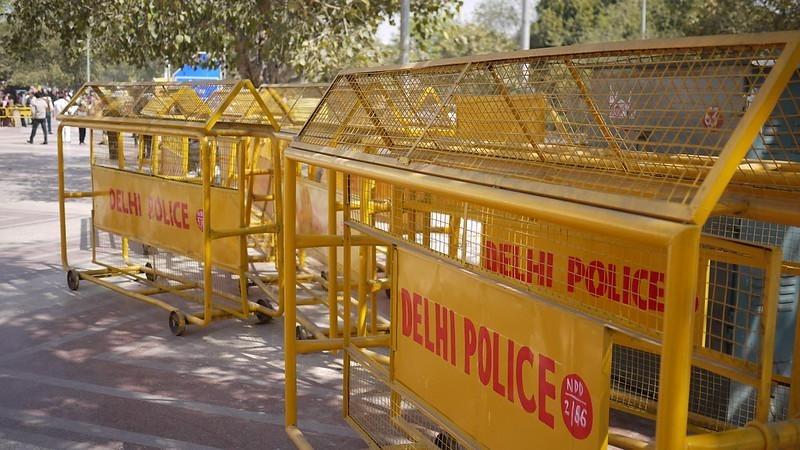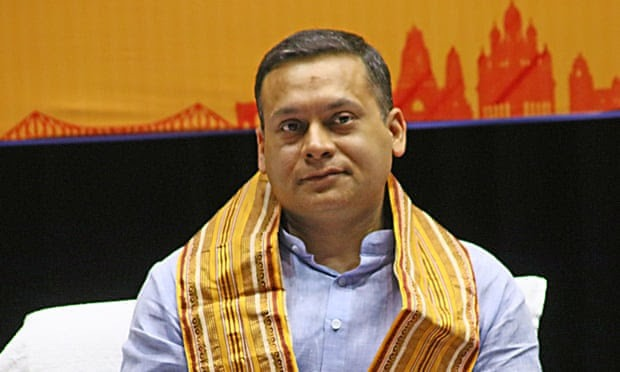The Wire editors’ homes were also raided after complaints about a report that used falsified documents. Various journalists and associations have critiqued the actions on social media.

On October 31, several members of the Delhi Police Crime Branch went to the homes of the founding editors of The Wire, Siddharth Varadarajan, M.K. Venu, Sidharth Bhatia, deputy editor Jahnavi Sen, and product-cum-business head Mithun Kidambi in Delhi and Mumbai.
They seized various devices as an outcome of a Section 91 notice issued in connection with an FIR filed against them by BJP leader Amit Malvi.
The laptops and phones of numerous editors of the Wire were taken by officers who came into their residences in the middle of the night. The headquarters of the website in the city were also searched.
No hash value was assigned to the seized devices, as The Wire stated in a statement. Additionally, no copies of the essential equipment for the office’s operation were offered.

The reports that were published on The Wire on the social networking platform Meta are the subject of Amit Malviya’s complaint. The stories had already been retracted by The Wire, which also disclosed that it was looking into them internally.
How have other journalists reacted to the Delhi Police’s raid on homes The Wire’s editors?
Journalists and opposition leaders who have long accused the government of attempting to control or stifle the media criticised the raids. Collectives of journalists and independent commenters have discussed the raids on social networks.
The raid by the police “smacks of mala fide motives,” according to the umbrella organisation DIGIPUB News India Foundation, which is made up of 11 digital news publications, including The Wire.
“A journalist or a media organisation that publishes a false report ought to be held accountable by its peers and civil society. But for the police to carry out an immediate and arbitrary search of the media houses’ office and its editor’s homes, based entirely on a private complaint of defamation filed by a spokesperson of the ruling party, smacks of mala fide intentions. Moreover, the danger of these searches being used as an excuse to seize and duplicate confidential and sensitive data held by The Wire cannot be dismissed.”
Digipub told in the statement
The letter also claimed that multiple recent incidents have demonstrated how police harassment and criminal prosecution have intimidated journalists and stopped them from carrying out their responsibilities.
The Press Club of India (PCI) stated that while the media must report and must always do so responsibly, the way the Delhi police responded to Malviya’s complaint smells of personal animosity. According to the statement, “Such acts have a chilling effect on the rest of the media and impact the freedom of speech as well.”
The raids disturbed the Mumbai Union of Journalists (BUJ), them. It stated that The Wire’s pledge of an internal examination of editorial missteps and retractions of the stories “are in the best traditions of the principles of self-regulation.” The BJP and the Delhi police “immediately seized upon The Wire’s admission of lapses to conduct raids,” it continued, which it called exceedingly unfortunate and reprehensible.
“The BUJ believes that there is still much to ascertain about the sources for the news portal’s stories and whether the fabrication of documents was part of a larger scheme of entrapment. At this stage, however, the BUJ feels that the editorial lapses on the part of The Wire were regrettable but bona fide mistakes and there was no tinge of mala fides.”
BUJ said in a statement
The raids were also denounced by the National Alliance of Journalists (NAJ) and Delhi Union of Journalists (DUJ), who claimed that because The Wire had retracted the articles and issued an apology, the searches were “uncalled for and are an attempt to muzzle the press.”
Beh Lih Yi, Asia programme coordinator for the Committee to Protect Journalists, stated: “The raids on the homes of The Wire editors is an excessive reaction by the Indian authorities.”
“The Wire has voluntarily withdrawn its reportage on Meta and Amit Malviya apologized to its readers, and initiated an internal review. We call on authorities and politicians to cease the harassment.”
CPJ told.
The searches were deemed “unjustified” by the Network of Women in Media India, who also expressed outrage.
“We at @NWM_India believe that the sole intent here is to muzzle India’s free press into silence. The media, or at least sections of it, adhere to the principles of self-regulation and self-correction and such excessive punitive action is deplorable and destructive.”
-NWMIndia
Apar Gupta of the Internet Freedom Foundation was one of many social media commenters who criticised the raids, saying that “criminal prosecution is disproportionate to any breach of journalistic ethics.”
Taking into consideration the diminishing press freedom in the country and the persistent state repression under which the media is struggling to regulate, several varying perspectives have come to the surface.
There has been a collective outrage about the police’s treatment of issues where the criminal procedure is being used for journalistic breaches. Whether this was politically motivated and is another act to curtail freedom or it unravelled owing to critical reporting about the current administration, is a question we need to ask.
Read More: https://tdznkwjt9mxt6p1p8657.cleaver.live/former-isro-director-awarded-with-kannada-award/













